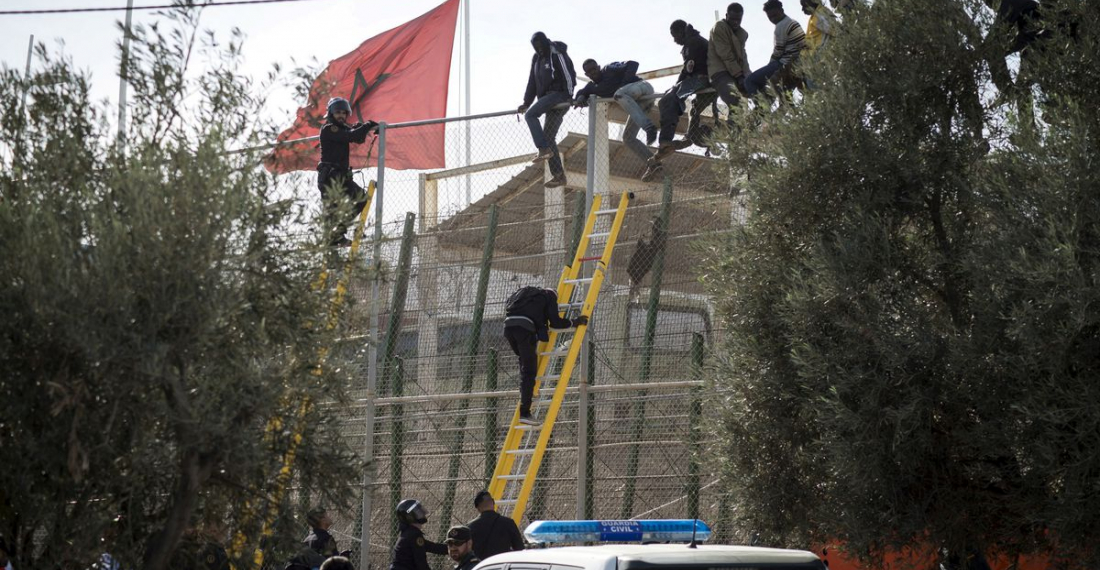At least 23 migrants died, and others were injured on Friday, 24 June, when a huge crowd tried to cross into Spain's North African enclave of Melilla.
Moroccan authorities said some of those who died had fallen from the top of a border fence as they attempted to breach the fence into the Melilla enclave.
Some 2,000 migrants had tried to break into the enclave by storming the fence, but most were pushed back by border guards.
More than 100 of them managed to get through and are being processed at a reception centre, according to Spanish security forces.
Initially, 18 deaths were reported, but authorities said on Saturday that five more people had died from their injuries.
After leaving injured people untreated for hours, several security personnel and migrants were admitted to hospital for treatment following clashes early on Friday.
It was the first attempt at a mass crossing into one of Spain's two North African enclaves since Spain and Morocco resumed diplomatic ties in March and agreed to strengthen cooperation on border control.
The agreement, which ended months of frosty relations, came after Spain supported Morocco's autonomy plan for the disputed region of Western Sahara.
Western Sahara - a vast desert area with a coastline rich in marine resources and a subsoil rich in phosphates - is a former Spanish colony classified as “non-autonomous” by the United Nations, with 80% of its territory currently under Moroccan control.
The Polisario Front - an Algiers-backed movement seeking independence for the territory - considers that the autonomy plan supported by Rabat as an attempt to legitimise the annexation of Western Sahara while ignoring the inalienable rights of the Sahrawi people to self-determination.
Spanish Prime Minister Pedro Sanchez blamed the raid on people traffickers, before describing the event as an attack on the country’s territorial integrity.
According to Esteban Beltran, director of Amnesty International in Spain, Friday's tragedy was the most serious incident on the Spanish-Moroccan border since 2014, when 15 people were killed.
Sources: CommonSpace.eu with Reuters (London), BBC (London), Al Jazeera (Doha).
Picture: African migrants sit on top of a border fence during an attempt to cross from Morocco into Spain's north African enclave of Melilla, November 21, 2015 ; Reuters website






